News
IMF Warns That Nigeria, 169 Other Countries To End 2020 Poorer


The global economy would end 2020 smaller than it started it due to the disastrous consequences of the COVID-19 pandemic, the International Monetary Fund (IMF ) has again warned.
Its Managing Director, Kristalina Georgieva, who spoke at a UN event on Financing for Development in the Era of COVID-19, said about 170 countries, and almost 90 per cent of the world, would be worse off by the end of this year despite efforts by governments to financially stimulate their economies
According to her , the current downturn is anything but simple. “The COVID-19 crisis is first and foremost a human tragedy, and it is more complex, more uncertain, and more severe than anything we have seen in living memory.”
In April, the IMF projected global output to shrink by 3.0 per cent this year. Recent data released suggests the global contraction may be even worse than that. We do expect partial recovery in 2021, and highly value the decisive actions taken by policy makers around the world to stabilize the economy.
The focus of her presentation was the fund’s interventions to enhance the global financial conditions for coping with the crisis, how they affect emerging markets and developing countries as well as how it is helping its members.
Nigeria, a key commodity exporter with very fragile economy, has been badly hit alongside several other African countries since COVID-19 was declared a global pandemic in March 11, 2020 as all its economic buffers have been eroded. Crude oil prices, the country’s major revenue earner fell below its budget benchmark of $57 while exchange rate spiked to over N400 at the autonomous market, leading to a revision of economic indices by the Muhammadu Buhari administration
While admitting that previous actions taken after the global financial crisis to strengthen financial sector resilience paid off – as banks are now well capitalized and macro-prudential regulations provide much needed protection, she noted that Nigeria’s central bank among others responded swiftly and forcefully to the dramatic shock of this crisis as, in February and March, as volatility spiked, liquidity deteriorated significantly, and massive asset market dislocations took place.
By cutting interest rates, purchasing over US$4 trillion of assets and announcing plans for more, and introducing foreign currency swap lines, major central banks helped abate strains in financial markets, and ease global financial conditions. She said
But we are not out of the woods yet. Financial conditions remain dependent on uncertain economic and health developments, and countries are now facing the prospect of rising bankruptcies, which could affect banks, particularly those with weaker buffers.
“To counter the impact of the crisis and support recovery, we advocate continued fiscal support, especially for workers and small and medium-sized enterprises. Globally, fiscal actions so far amount to about US$9 trillion and significant further efforts will be needed in the months ahead.”
With regard to how the crisis is impacting financial conditions in emerging markets and developing economies, the IMF boss regretted that in just two months of the crisis investors pulled more than US$100 billion out of emerging markets—more than three times larger than during the global financial crisis.
News
FG Declares May 1st Public Holiday To Mark Workers’ Day


The Federal Government had declared Wednesday, May 1st, 2024, as a public holiday to mark this year’s Workers’ Day.
Nigeria’s Minister of Interior Olubunmi Tunji-Ojo made the declaration, according to the ministry’s Permanent Secretary Aishetu Ndayako.
“The Federal Government has declared Wednesday, 1st May 2024 as a Public Holiday to commemorate this year’s Workers’ Day Celebration,” Aishetu said in a statement on Tuesday, April 30.
“In alignment with this year’s theme, which focuses on ensuring safety and health at work in a changing climate, I wish to state that the Federal Government remains steadfast in its resolve to prioritise the safety and well-being of all citizens,” the minister said.
“Let me reaffirm Mr. President’s commitment to providing a conducive environment for work, where every worker can thrive and contribute meaningfully to national development”.
The minister, who acknowledged the contribution of workers, called for more measures to mitigate the adverse effects of climate change through synergy.
“The Minister also urged Nigerians to remain committed to the present administration’s Renewed Hope Agenda as he wishes workers a happy celebration,” the statement read.
News
“There Would Be total Blackout For Three Months If Electricity Tariff Hike Is Not Implemented ” – Minister Of Power Warns


The Minister of Power, Adebayo Adelabu, has warned that there would be a total blackout in the country in the next three months if the proposed electricity tariff hike is not implemented.
The minister gave the warning in Abuja when he appeared before the Senate Committee on Power at an investigative hearing over the recent electricity tariff hike by the Nigerian Electricity Regulatory Commission (NERC)on Monday, April 29.
In his words
“The entire sector will be grounded if we don’t increase the tariff. With what we have now in the next three months, the entire country will be in darkness if we don’t increase tariffs. The increment will catapult us to the next level. We are also Nigerians, we are also feeling the impact.”
He said the sum of $10 billion is needed yearly for the next ten years to revive the nation’s power sector and nip in the bud the challenges bedevilling it.
“For this sector to be revived, the government needs to spend nothing less than 10 billion dollars annually in the next 10 years.
“This is because of the infrastructure requirement for the stability of the sector. But the government cannot afford that. And so we must make this sector attractive to investors and to lenders. So, for us to attract investors and investment, we must make the sector attractive, and the only way it can be made attractive is that there must be commercial pricing.
“If the value is still at N66 and the government is not paying subsidy, the investors will not come. But now that we have increased the tariff for A Band, there are interests being shown by investors,” he said.
Adelabu said the inability of the government to pay outstanding N2.9 trillion subsidy was due to limited resources, hence the need to evolve measures to sustain the sector.
News
Fuel Price Skyrockets To ₦1000 Per Litre In Some States As Scarcity Sets In


News reaching us is that fuel Prices have gone up ranging up to ₦800 to ₦1000 and above per litre in different states.
The price increase is also as a result of fuel scarcity which has set in. It is believed that some fuel stations are currently hoarding fuel.
Motorists are queuing up in large numbers at filling stations across Kano State struggling to buy petrol that is now selling at over N1,000 per litre.
One Mr Ibrahim said filling stations in the metropolis were charging as high as N1,000 as of Monday morning, adding that he bought the product over the weekend at prices ranging between N950 and N920 before the price skyrocketed on Monday.
The fuel scarcity has also touched Abuja and even Lagos.
-


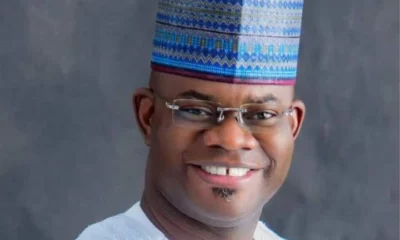


 News5 days ago
News5 days agoEFCC: New Documents Extracted Shows Yahaya Bello Allegedly Paid School Fees To The Tune Of $845,852,84 For His Family Members
-



 News4 days ago
News4 days agoKing Charles Reportedly “Really Unwell” And Funeral Plans Are Currently Being Reviewed
-



 Entertainment3 days ago
Entertainment3 days agoBig Congratulations To BBNaija Star, Miracle Igbokwe Who Graduated With Distinction From Embry-Riddle Aeronautical University In Florida USA
-





 Finance3 days ago
Finance3 days agoAISA Has Refunded The Fees Paid By Yahaya Bello To EFCC
-

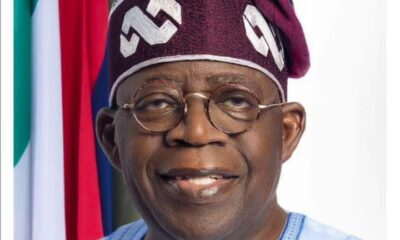

 Politics1 day ago
Politics1 day ago“Fuel Subsidy Removal Was A Necessary Action To Prevent Nigeria From Going Bankrupt” – President Tinubu
-

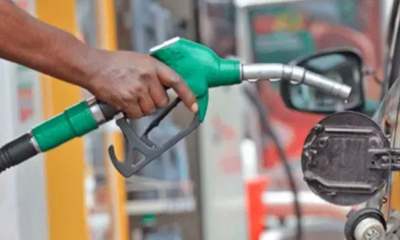

 News1 day ago
News1 day agoFuel Price Skyrockets To ₦1000 Per Litre In Some States As Scarcity Sets In
-

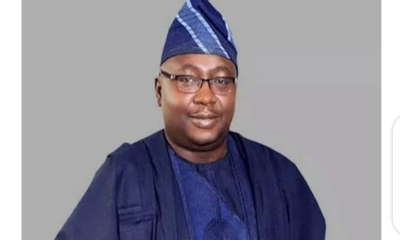

 News9 hours ago
News9 hours ago“There Would Be total Blackout For Three Months If Electricity Tariff Hike Is Not Implemented ” – Minister Of Power Warns
-

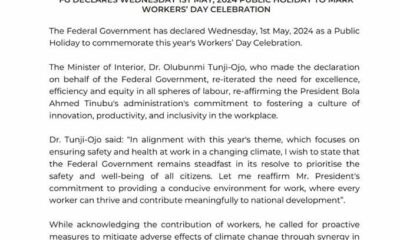

 News3 hours ago
News3 hours agoFG Declares May 1st Public Holiday To Mark Workers’ Day






